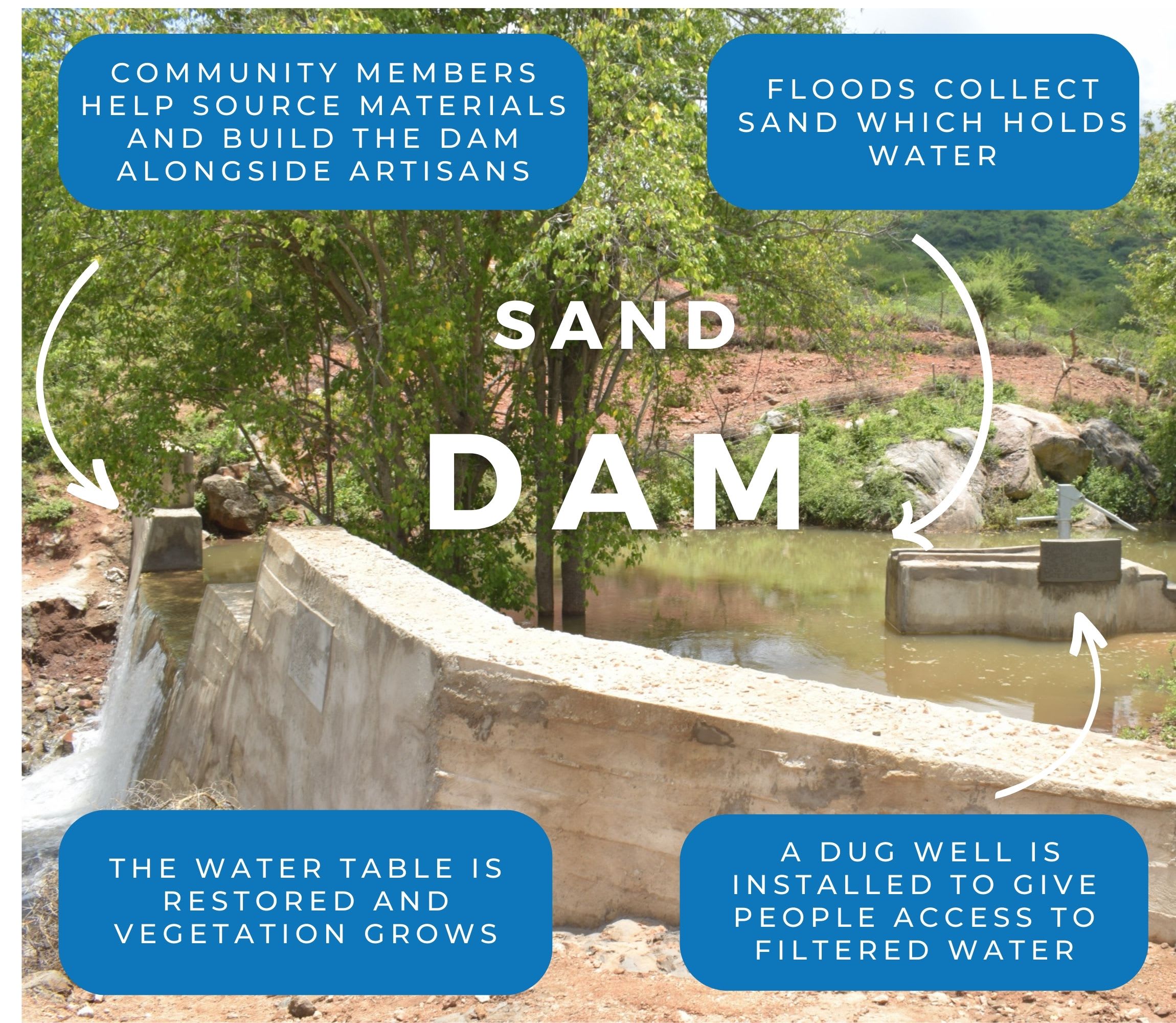This project is a part of our shared program with Africa Sand Dam Foundation. Our team is pleased to directly share the below report (edited for clarity, as needed).
Welcome to the Community
Mbindi Self-Help Group is a new group formed in the year 2015 by a total of 27 households. The group is concerned about how to improve social well-being of its members. Its main activities included merry-go-rounds (contribute funds set aside for the group's needs) and soil conservation at each member's farm. However, the community's efforts towards planting trees have not been fruitful --- severe water shortages in the area affect the establishment of nurseries.
The main water sources began to dry up and could not provide water for this community with a large population of 800. The riverbeds are bone dry and the protected springs located four kilometers away are no longer reliable.
"We used to sleep at the water point due to long lines and depleted recharging of wells," reported one group member during our baseline surveys. The community, with the help of their neighbors from Yavili Self-Help Group (click here to see a project by Yavili!), approached ASDF staff to seek assistance in alleviating their huge water shortage.
The water shortage issue will be tackled head-on by a five-year program to build sand dams, dig wells and educate the community.
Water Situation
This community is located in a fairly hilly terrain which is also densely populated. The main water sources are natural springs. Due to the growth in population, the vegetation surrounding the springs has been destroyed, hence affecting the recharge rate of the springs.
Thus, community members must form a line to wait for their water. Moreover, they are waiting for water from unprotected springs that are open to contamination. Most of this contamination comes from people around the spring themselves, but it also comes with the rain that washes waste into the water.
Women normally use 20-liter jerrycans to fetch water for their families. They will either carry this container on their backs, or will bring a donkey that can carry multiple jerrycans. Once home, a woman like Muli Mutisos will consolidate all of this water into a larger plastic barrel (see Muli and her homestead in the pictures below!).
Because of the hurdles when fetching water, people are willing to pay a price. Many young people have dropped out of school to fetch water to sell.
Alternatively, there are some private boreholes in the community that allow neighbors to pay 40 shillings per 20-liter jerrycan of water. This is unaffordable for many families.
Local farmer Boniface Waita says that "During the driest months of the year, fetching water becomes a very expensive activity. We miss cooking meals that require a lot of water, since water is expensive. It's a challenge especially to families who do not have steady incomes."
Many members of this community view clear water as safe water, and thus do not practice any form of water treatment.
Sanitation Situation
100% of households have a pit latrine, though shallow. Many of these are in smelly and dirty condition. Nonetheless, open defication is not an issue.
All of the households have a dedicated room for bathing, and over 75% of them have helpful tools like dish racks and clotheslines. There are no hand-washing stations, though.
Since locals rely on farming, they view composting as very important. Waste is disposed in a pit at the back of each compound.
Plans: Hygiene and Sanitation Training
Self-help group members will be trained for two days on hygiene and sanitation. Based on our initial survey of the area, the facilitator has decided to focus on water treatment and personal hygiene.
Plans: Sand Dam
The community will provide the local resources available, such as sand, stone, and water. They will also assist in manual labor. This sand dam is projected to be 37.1 meters long and 4.1 meters high. Its location has been determined by the collaboration of both community and our engineers, ensuring that it is both convenient and technically sound. The site also has a large catchment area that will provide for more water storage. The self-help group is also building a hand-dug well that will give locals safe access to this reservoir (click here to see the project page).
Thank You for your generosity that unlocks hope for Mbindi Self-Help Group and their families!

 Sand Dam
Sand Dam
 Rehabilitation Project
Rehabilitation Project






















